
Conférence Archipel 2024 – du 15 au 18 avril 2024, Insa Lyon (appel à communications ouvert jusqu’au 8 novembre)



The Programmable Audio Workshop (PAW) is a yearly one day FREE event gathering members of the programmable audio community around scientific talks and hands-on workshops. The 2023 edition of PAW is hosted by the INRIA/INSA/GRAME-CNCM Emeraude Team at the Marie Curie Library of INSA Lyon (France) on December 2nd, 2023. The theme of this year’s PAW is “Artificial Intelligence and Audio Programming Languages” with a strong focus on computer music languages (i.e., Faust, ChucK, and PureData). The main aim of PAW-23 is to give an overview of the various ways artificial intelligence is used and approached in the context of Domain Specific Languages (DSL) for real-time audio Digital Signal Processing (DSP).
More information and registration here
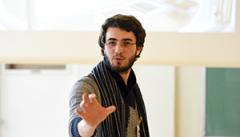
The defense will take place on Tuesday 19th December at 2 PM in the Heidi Lamarr building (Amphi Chappe), Insa-Lyon, Villeurbanne.
Navigation Among Movable Obstacles (NAMO) Extended to Social and Multi-Robot Constraints
As robots become ever more commonplace in human environments, taking care of ever more tasks such as cleaning, security or food service, their current limitations only become more apparent. One such limitation is of their navigation capability in the presence of obstacles: they always avoid them, and freeze in place when avoidance is impossible.
This is what brought about the creation of Navigation Among Movable Obstacles (NAMO) algorithms, expected to allow robots to manipulate obstacles as to facilitate their own movement. However, these algorithms were designed under the hypothesis of a single robot per environment, biasing NAMO algorithms into only optimizing the single robot’s displacement cost – without any consideration for humans or other robots. While it is desirable to endow robots with the human capability of moving obstacles, they must however do so while respecting social norms and rules of humans.
We have thus extended the NAMO problem as to take into account these new social and multi-robots aspects. By relying on the concept of affordance spaces, we have developed a social occupation cost model allowing the evaluation of the impact of moved objects on the environment’s navigability. We implemented (and improved) reference NAMO algorithms, in our open source simulation tool, and modified them so that they may plan compromises between robot displacement cost and social occupation cost of moved obstacles – resulting in improved navigability. We also developed an implicit coordination strategy allowing the concurrent execution of these same algorithms by multiple robots as is, without any explicit communication requirements, while preserving the no-collision guarantee; verifying the relevance of our social occupation cost model in the actual presence of other robots. As such, this work constitutes the first steps towards a Social and Multi-Robot NAMO.
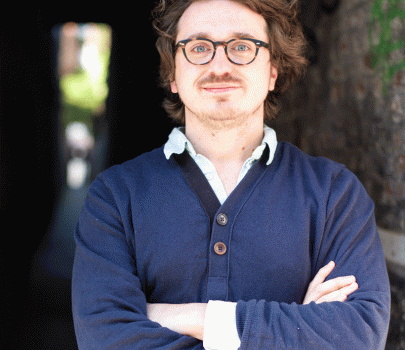
Speaker: Rémi Bardenet (CNRS) is a recipient of a 2021 CNRS bronze medal and PI of the ERC Starting Grant Blackjack (https://rbardenet.github.io/).
Date: 14/11/2023
Time: 12h15
Place: Amphi Chappe/Lamarr, 6 avenue des arts, La Doua Campus
Title: Monte Carlo integration with repulsive point processes
Abstract: Joint work with Adrien Hardy, Ayoub Belhadji, Pierre Chainais, Diala Hawat, and Raphaël Lachièze-Rey.
Monte Carlo integration is the workhorse of Bayesian inference, but the mean square error of Monte Carlo estimators decreases slowly, typically as 1/N, where N is the number of integrand evaluations. This becomes a bottleneck in Bayesian applications where evaluating the integrand can take tens of seconds, like in the life sciences, where evaluating the likelihood often requires solving a large system of differential equations. I will present recent results on variance reduction and fast Monte Carlo rates using interacting particle systems. The underlying idea is that to integrate a function with a handful of evaluations, one should evaluate the function at well-spread (random) locations, where “well-spread” means “so that one can benefit from the smoothness of the target function”.

Aujourd’hui a lieu notre journée de rentrée du CITI, au programme présentation des nouveaux arrivants, interventions “Mixité des genres”, “Ecoanxiété”, et “Burn out”, présentation de la cellule DDRS du laboratoire, présentation des divers chantiers au niveau du CITI, échanges et moments de cohésion au musée Confluence avec entre autre un escape game.
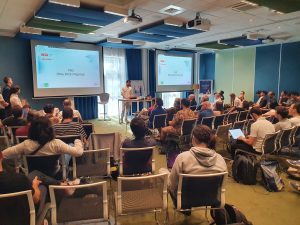
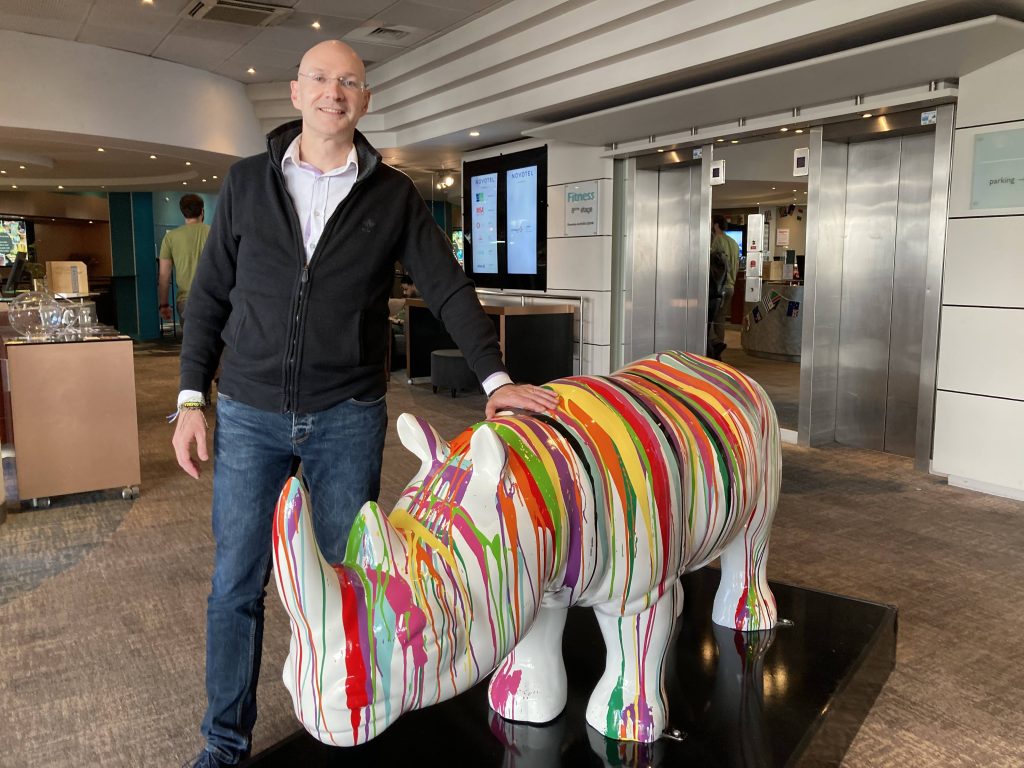
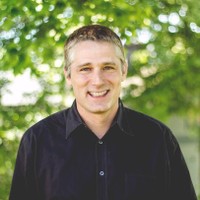
Speaker: Prof. Alexandre Proutière (KTH)
Date: 11/10/2023
Time: 15h35
Place: Room TD-C Chappe/Lamarr, 6 avenue des arts, La Doua Campus
Title: Radio Network Optimization: A Bandit Approach
Abstract: In this talk, we demonstrate how to efficiently solve radio network optimization problems using a bandit optimization framework. We mainly consider the problem of controlling antenna tilts in cellular networks (so as to reach an efficient trade-off between network coverage and capacity). We start with the design of algorithms learning optimal antenna tilt control policies at a single base station, and formalize this design as a Best Policy Identification (BPI) problem in contextual Multi-Arm Bandits (MABs). We then consider coordinated antenna tilt policies at several interfering base stations, and formalize the design of algorithms learning such policies as a multi-agent MAB problem. In both settings, we derive information-theoretical performance upper bounds satisfied by any algorithm, and devise algorithms approaching these fundamental limits. We illustrate our results numerically using both synthetic and real-world experiments.
This is a joint work with Filippo Vannella (KTH / Ericsson Research) and Jaeseong Jeong (Ericsson Research). The talk is based on the following papers:
https://arxiv.org/pdf/2201.02169.pdf (IEEE Infocom 2022)
https://proceedings.mlr.press/v202/vannella23a/vannella23a.pdf (ICML 2023)
Statistical and computational trade-off in multi-agents multi-armed bandits (to appear in NeurIPS 2023)